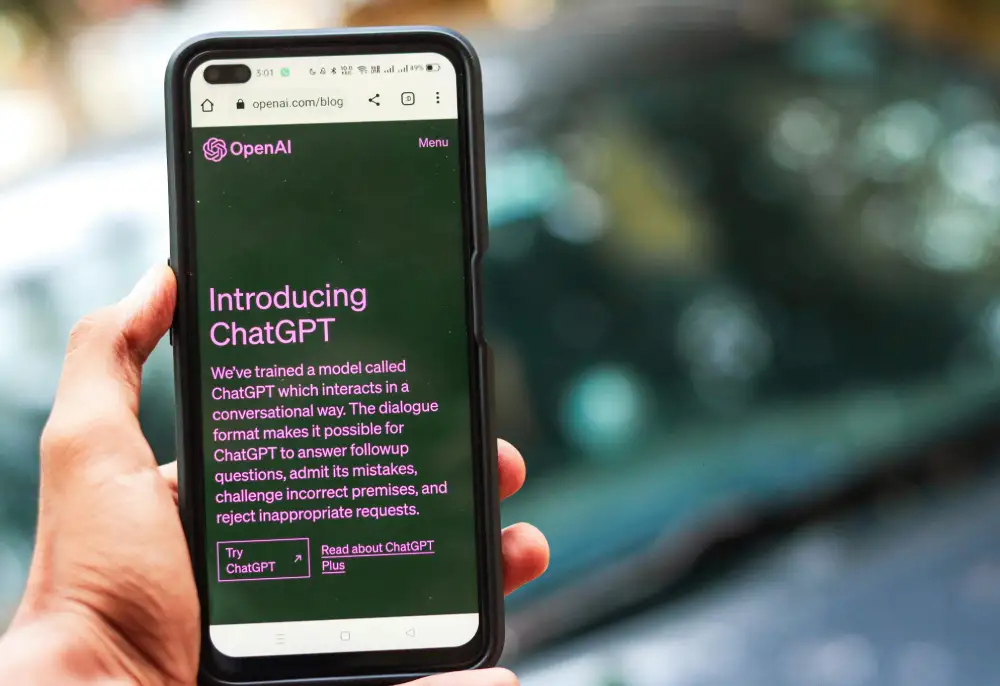OpenAI’s latest release is admittedly smarter and faster but it is not without flaws, as per reviews…
When OpenAI announced the much-awaited GPT-5, there were a lot of expectations! After the promise of GPT-4 and GPT-4o, the consensus was that GPT-5 would move the needle even further. But a few weeks into the launch, the reviews have been subpar.
While some reviewers believe that GPT-5 delivers on expectations, most reviews suggest that there has been no significant leap. Going by Latent Space’s verdict, the update is “incremental but significant”. There seems to be more finesse to this version than shiny new tricks.
PCMag wasn’t too impressed either: “GPT-5 is supposed to be smarter, but it just makes me want to switch chatbots.”
So, let’s take a look at where GPT-5 delivers and where it comes up short:

Improvements of GPT-5
Going by the reviews, here are the areas where GPT-5 stands out:
- Better Reasoning: One area where GPT-5 is faring better than its predecessors is being consistent when it comes to long prompts. Unlike GPT-4 which loses the thread when it comes to keeping context, this one manages to hold on to the entire brief. This is good news for areas like coding and research.
- Faster Responses: GPT-5 seems to have done away with the annoying long wait times when it came to responses.
- More Reliable Tone: GPT-5 has been consistent when it comes to maintaining voice and tone. This is good news for content creators who would want to retain a brand’s personality across writeups.
- Fewer Factual Errors: While it is not 100% yet, it has been noted than GPT-5 makes fewer factual mistakes than GPT-4. According to TechRadar who test GPT-5 against 4, the former emerged trumps in three out of five prompts. The verdict is that GPT-5 is better equipped to handle logic-heavy tasks.

Shortcomings of GPT-5
While there are improvements in GPT-5, reviewers noticed several areas where it came up short:
- Less Creative: According to several reviewers, GPT-5 plays too safe compared to its predecessors. It seems to have lost its creative spark and imagination. As per Index.dev, GPT-5 is “more reliable, but also more rigid.”
- Overconfident Errors: The fact of the matter is that GPT-5 still makes the occasional mistakes. But the bigger problem is that even when it is erring, it sounds pretty confident about the responses and this can be a major problem depending on what you are using it for.
- Competition Pressure: The word is the Anthropic’s Claude and Google’s Gemini are catching up and this has put pressure on OpenAI when it came to GPT-5’s launch. Many reviewers are wondering if the changes from GPT-4 are enough to qualify as an upgrade. As PCMag put it, “It makes me curious about alternatives rather than locking me in.”

Expectations vs Reality
The question remains whether GPT-5 is a letdown because of what it delivers or because of what was expected of it. As mentioned earlier GPT-4 and 4o were groundbreaking, which increased the expectations from GPT-5. Which is why it fails to deliver as it is more of a practical tool than a jaw-dropping leap.
Writing on Substack, Rakia Bensassi took a more balanced approach: “No hype, no drama. GPT-5 is useful, smart, and mostly reliable.” This might be one of the better ways to look at this upgrade as AI is not going to outdo itself at every step.
Depending on what you use it for, steady improvements matter at every step and that is where GPT-5 delivers.

The Last Word
If you are already using ChatGPT, then switching to 5 makes sense. It is faster, more reliable and handles complex prompts better. But if you switch to the latest version expecting miracles, you are bound to be disappointed.
As someone put it, it’s like upgrading your phone from an older version. The camera is better, the OS is faster and it looks shinier as well. But is it revolutionary? Well, not quite.
In case you missed:
- AI Chaos: Why OpenAI, Google and Microsoft Keep Shifting Strategies
- Reddit launches AI-Powered ‘Answers’ Feature in India
- Nintendo Switch 2 Coming Soon! With a New Console & New Mario Kart
- OpenAI is now Focussing on Superintelligence!
- Mary Meeker’s AI Report: ChatGPT is Growing Faster than Google Search
- Grok 3 vs ChatGPT: Which One Should You Pick & Why?
- The Future of Online Marketing: Adobe introduces AI Agents
- You can Now Create a Video From a Single Image!
- iPhone 17 Pro Review: Is the Price Justified?
- iPhone 18 might use Satellites for Connectivity!









